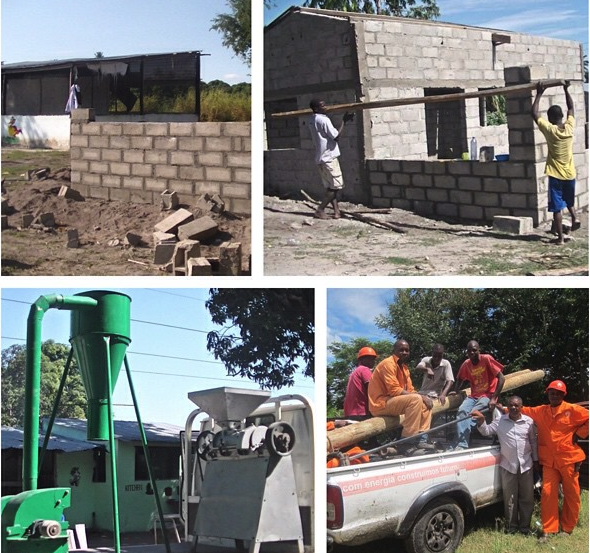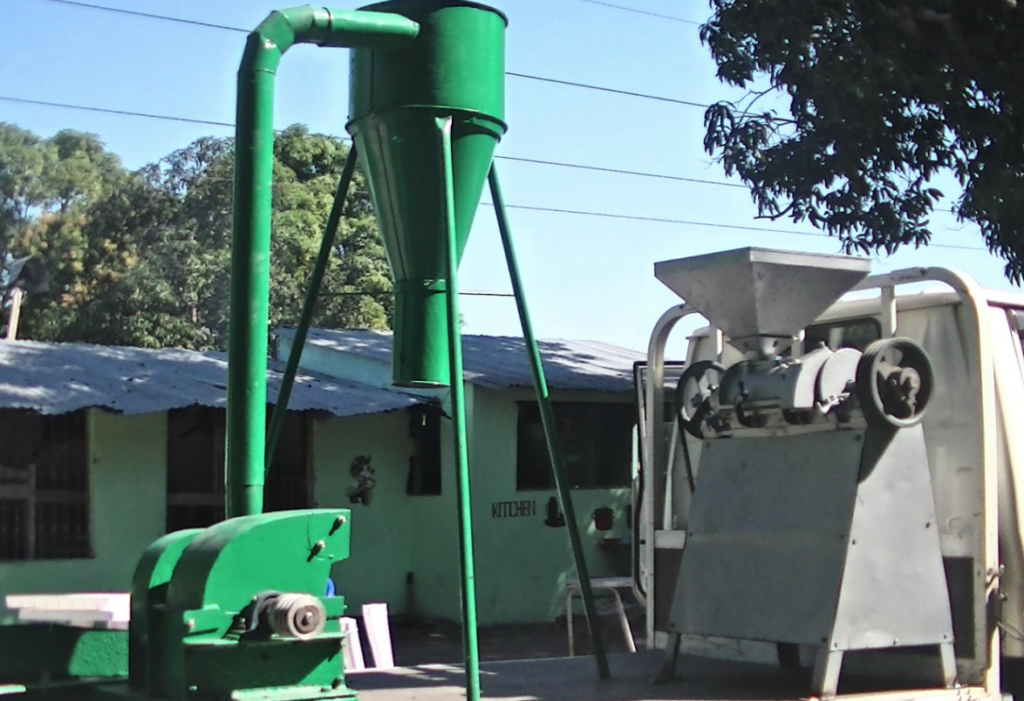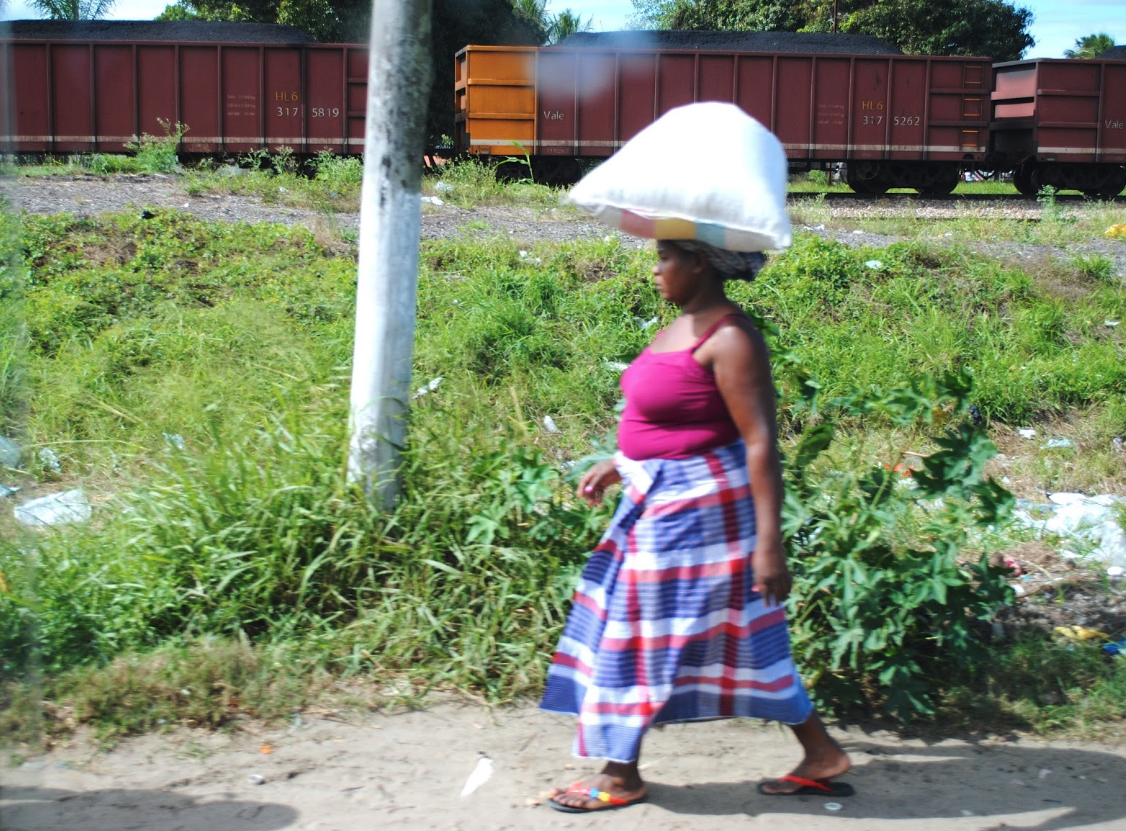Suppose you’re in the mood to make some corn bread. You’re a true chef, and the thought of using a box mix gives you hives. But, you’re out of corn flour. What’s your solution?
Option A: You hop in the car, cruise over to the grocery store, and buy some corn flour. You’re back in the kitchen 20 minutes later, mixing and whisking, dancing to Pandora on your wireless Bluetooth speaker.
Option B: You grab a 50-kilogram sack of corn and prepare for an eight-mile walk to the local mill. You strap your smallest child to your back and ready the other children for the journey. The older kids could stay home and watch the younger ones, but you may need help carrying the corn. You decide to bring the whole gang because 110 pounds of corn is quite heavy. Nonetheless, the older children are missing a day of school. All for some corn bread.
If you chose Option B you may live in Mozambique and the corn bread might be all that’s for tonight’s dinner.
I left my heart in Mozambique last summer. I went as a part of a team called Life for Mozambique, which is the global missions branch of my church, Life Covenant in Torrance, California. Through eight years of following God’s lead, two orphanages and 16 churches have been established in Mozambique. We spent a lot of time at the first orphanage, The Melanie Center. In addition to housing and caring for few of the country’s 700,000 orphans, the Melanie Center serves the local community in many ways.
To get a good idea of what this community is like, imagine your neighborhood, but take away all of the infrastructure: the stores, shops, and service providers. Turn all the roads to dirt. Delete most of the electricity. Picture a half dozen one or two-room houses made of cinder blocks and thatched roofs inhabiting the space your home occupies. Each day we traveled through this community by van on a long bumpy road. We counted over 200 homes along the road. Countless others lay hidden behind those that were visible. Needless to say, it’s a large community.
“This was the family of God assisting in a real, tangible, completely life-changing way.”
Who knows how many people actually live around the Melanie Center, but many of them visit for medical care, education, and clothing. One of our goals last summer was to find another project to help move the Melanie Center toward self-sustainment. We already have a chicken-raising business called Operation Mozambeaks. A group of our guys visited the nearest corn mill. They reported back that building a mill at the Melanie Center was a strong possibility. They also figured that we’d require about $17,000 to build it.
We thought it would be a daunting task, as 17 large ones is more than half of the Life for Mozambique annual budget. Some serious fundraising was in our future. Just about a year later, the mill is almost ready to go. Without a fundraising campaign. Because when God needs a mill, he provides the money.
We started by presenting the need, which we did back at church. One Sunday morning after our return, everybody from the trip had about three minutes to talk about his or her experience. The last team member to talk was one of the mill researchers. He talked about the women, the kids missing school, the weight of the corn, and the distance traveled for a simple meal.

A pair of women in the congregation donated about two-thirds of the money to build the mill. They saw the struggle and the danger the women in Mozambique endure to provide food for their families. They felt the pain of walking long distances and of carrying heavy loads. They understood what such a task was doing to these women’s bodies, the physical breakdown, the wear and tear, and the emotional hardship. They realized that they couldn’t do themselves what Mozambican women do day in and day out. They were compelled to act. This was women helping women, girls helping girls, sisters helping sisters. This was the family of God assisting in a real, tangible, completely life-changing way. The rest of the money came from a local foundation that has a heart for children and for providing for those in need.
Construction on the mill happened over three phases. First electricity had to be run out to the site on the Melanie Center grounds where the mill would sit. Then a building was erected to house the mill. Lastly, the milling equipment had to be purchased and installed. As of today, the mill is nearly functional. Remaining agenda items include hooking up the electricity and hiring some local people to operate the equipment and keep the books. A security guard will also be required. Thus, the mill is also creating employment.

It’s estimated that the mill could generate $30.00 a day. After expenses and salaries the profits will go toward the operating costs of the Melanie Center. Additionally, the discarded cornhusks can be used as chicken feed, which offsets some of the Operation Mozambeaks expenses. After time, the mill quite possibly could generate enough money to cover all the costs of running the Melanie Center. That would free up Life for Mozambique to fund for other projects like a mill at the second Melanie Center or possibly a third orphanage.
So now Option B from above is completely different: You’re out of flour and your older kids are at school. You strap your youngest child to your back and walk a few hundred yards to the local mill. Your smaller children run up ahead, laughing and playing. Your burden is light because the distance is short. A smile crosses your face as you remember how long this journey once took. As the vision of freshly baked cornbread fills your mind, you offer up a prayer of thanks for the new local mill, knowing you’ll be home in plenty of time to feed your hungry family.
